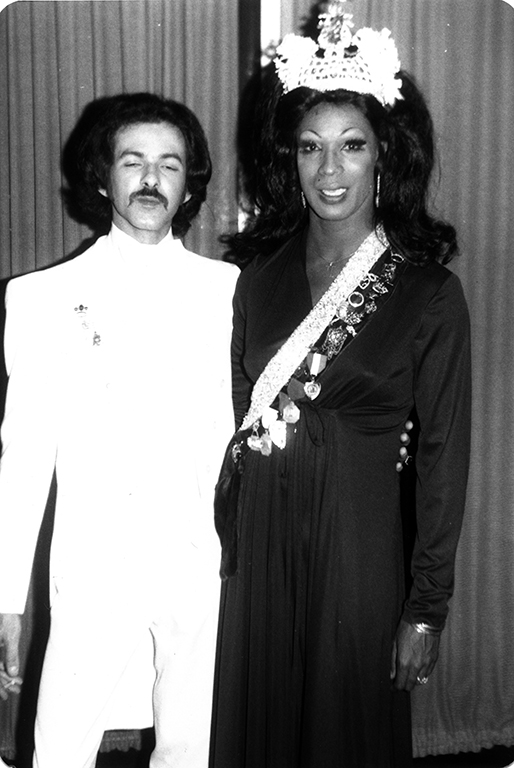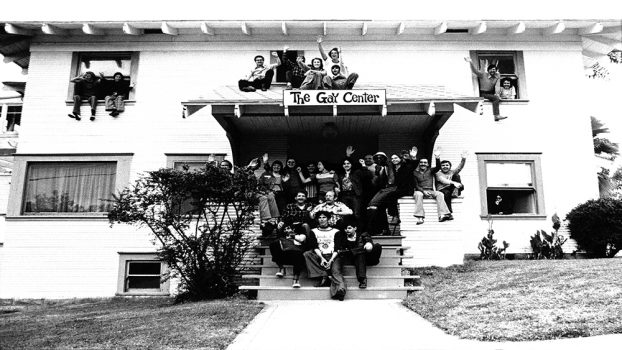In 1972, Metropolitan Community Church (MCC) continued to hold services and events and the Catholic support group Dignity returned to San Diego. The Monday Night Lesbians also formed in the early 1970s. Significantly, Stephen Bell and Jess Jessop of the Gay Liberation Front (GLF) attended a national conference in Chicago organized by the Gay Activists Alliance of New York. Bell and Jessop were among the participants that developed the “1972 Gay Rights Platform in the United States.” Bell, along with Kight and Dr. Frank Kameny split from the rest of the convention to develop the “Forty-Four Points,” a list of agreed-upon positions regarding the gay community. The men fundraised for this trip by collecting cans and through donations from the bars.
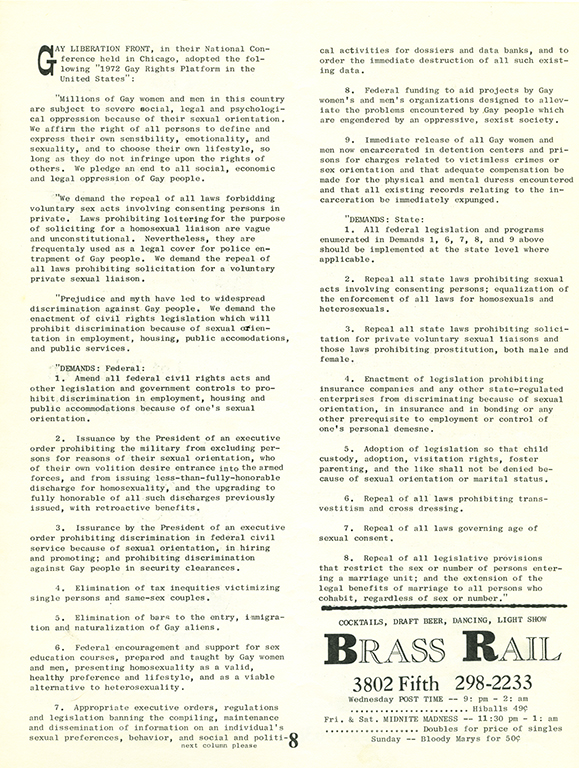
The Gay Information Center (GIC) hotline documented a tangible need for comprehensive services for the gay community. On October 3rd, the first meeting to plan a gay center was held at Weichel Hall. In attendance at the early meetings were GLF presidents Stephen Bell and Jess Jessop, GLF member Bernie Michels, his partner Thom Carey, Pat Byers and Judith Knight of the Monday Night Lesbians, Peggy Heathers, Cynthia Lawrence-Wallace, and others. The meetings were small at first, but the vision was grand. Jessop in particular spoke of the center with a long term perspective. The hope was that the center would be a place for gay men and lesbians to access any kind of help they needed, and serve as an alternative to bars and churches. As momentum for the center picked up, GLF involvement and programming slowed, thus no Gay-In was held that year.
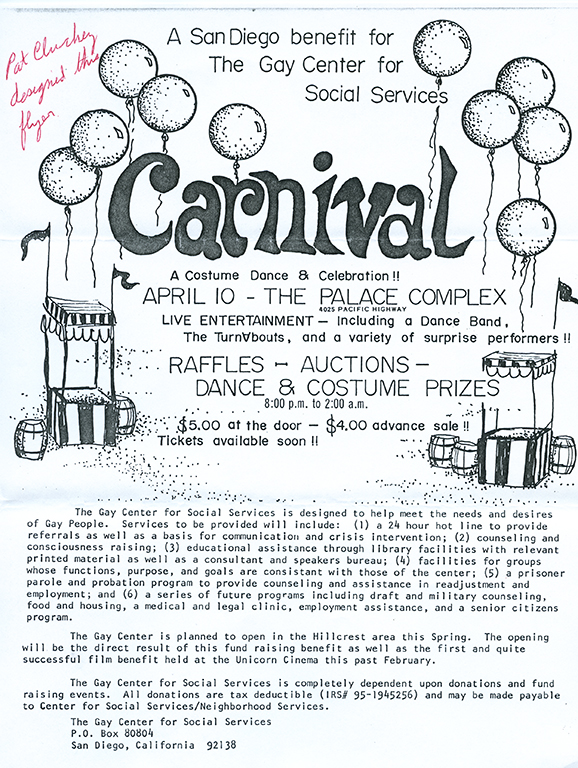
GLF disbanded in early 1973, but the GIC continued and energy went into developing the gay center. In February, organizers planned a screening of Sunday, Bloody Sunday at the Unicorn Theatre in La Jolla as a fundraiser. They sold over four hundred tickets and netted over $700. A carnival fundraiser sponsored by eight gay bars was also held on April 10th at the Palace Saloon on Pacific Highway. Around four hundred tickets were sold and the event earned a net profit of $1900. This group also organized the first San Diego Gay Pride Week from June 24th to July 1st, closing with the third and final “Gay-In 3” in Balboa Park. By September, the Center for Social Services, known today as the San Diego LGBT Community Center or simply, “The Center,” opened at 2250 B St. in Golden Hill had officially opened.
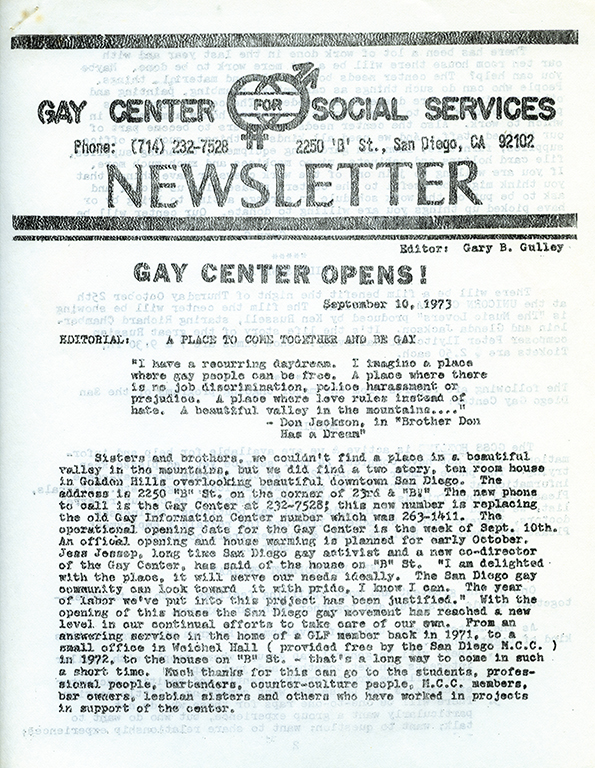
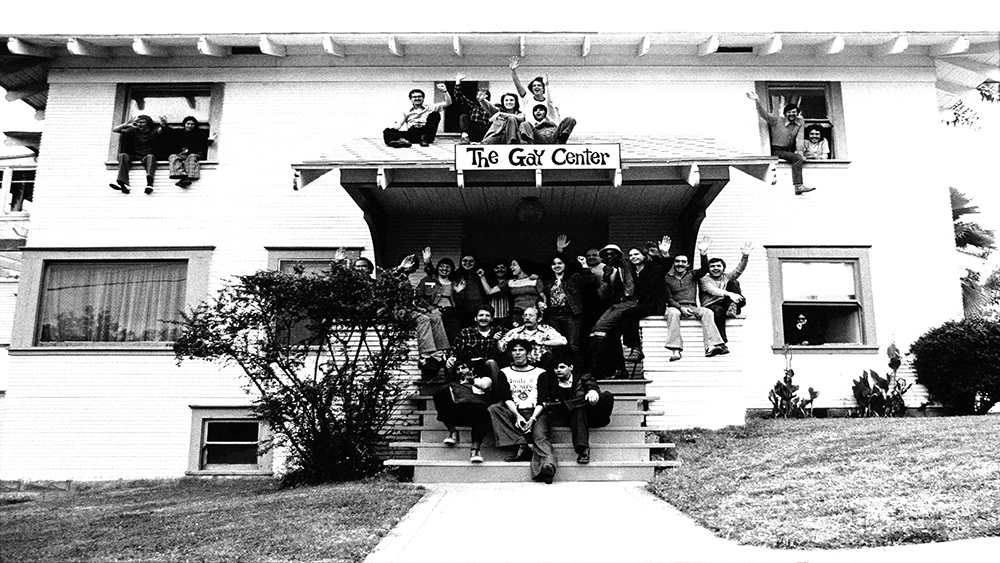
Additional groups and publications continued to develop. Gay newspaper Pacific Coast Times began publication and the California Committee for Sexual Law Reform was established. The Imperial Court de San Diego held its first coronation at the Royal Inn. Black drag queen Tawny Tan was elected as first Empress and Omar Lowry as first Emperor.
